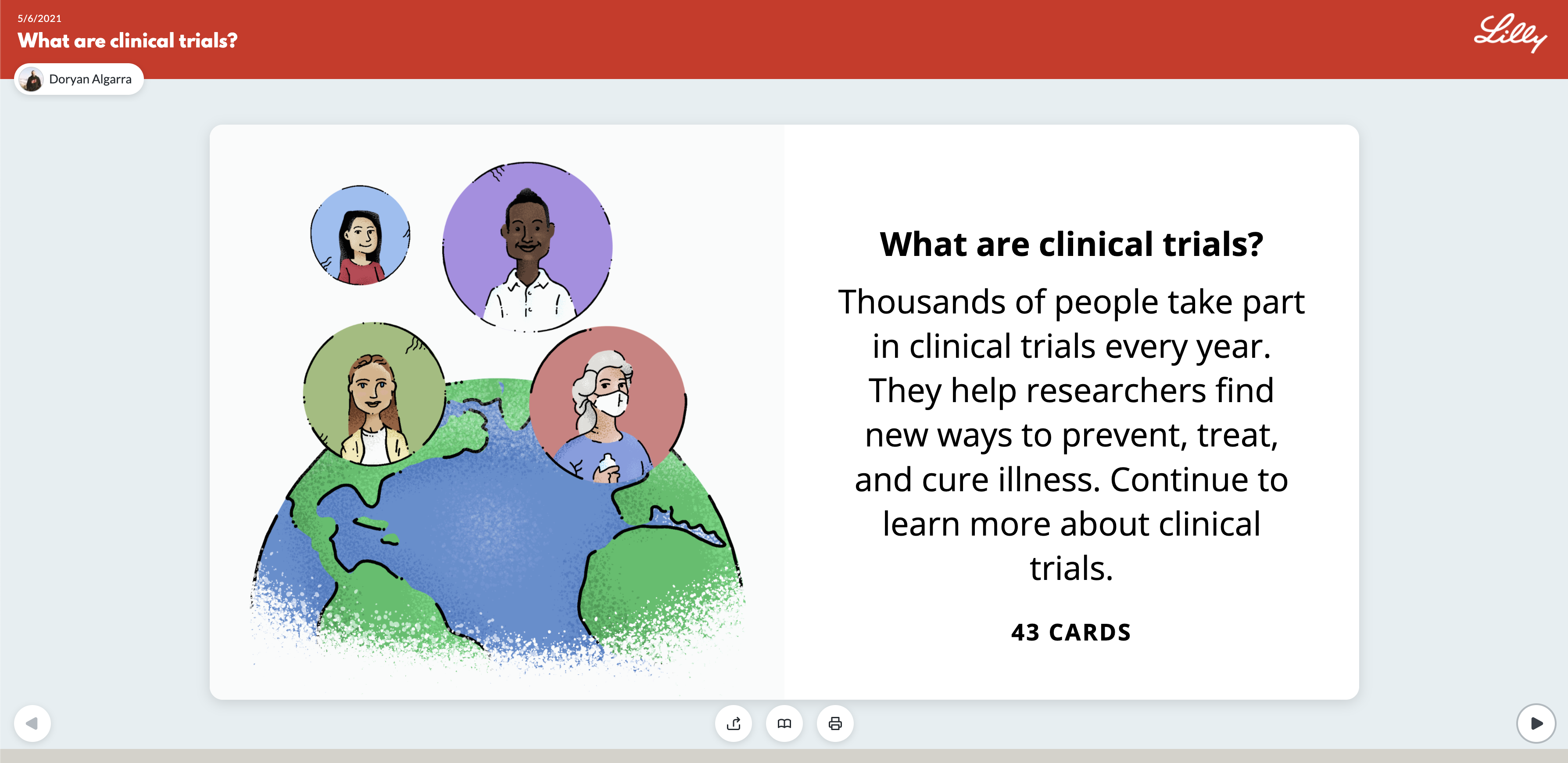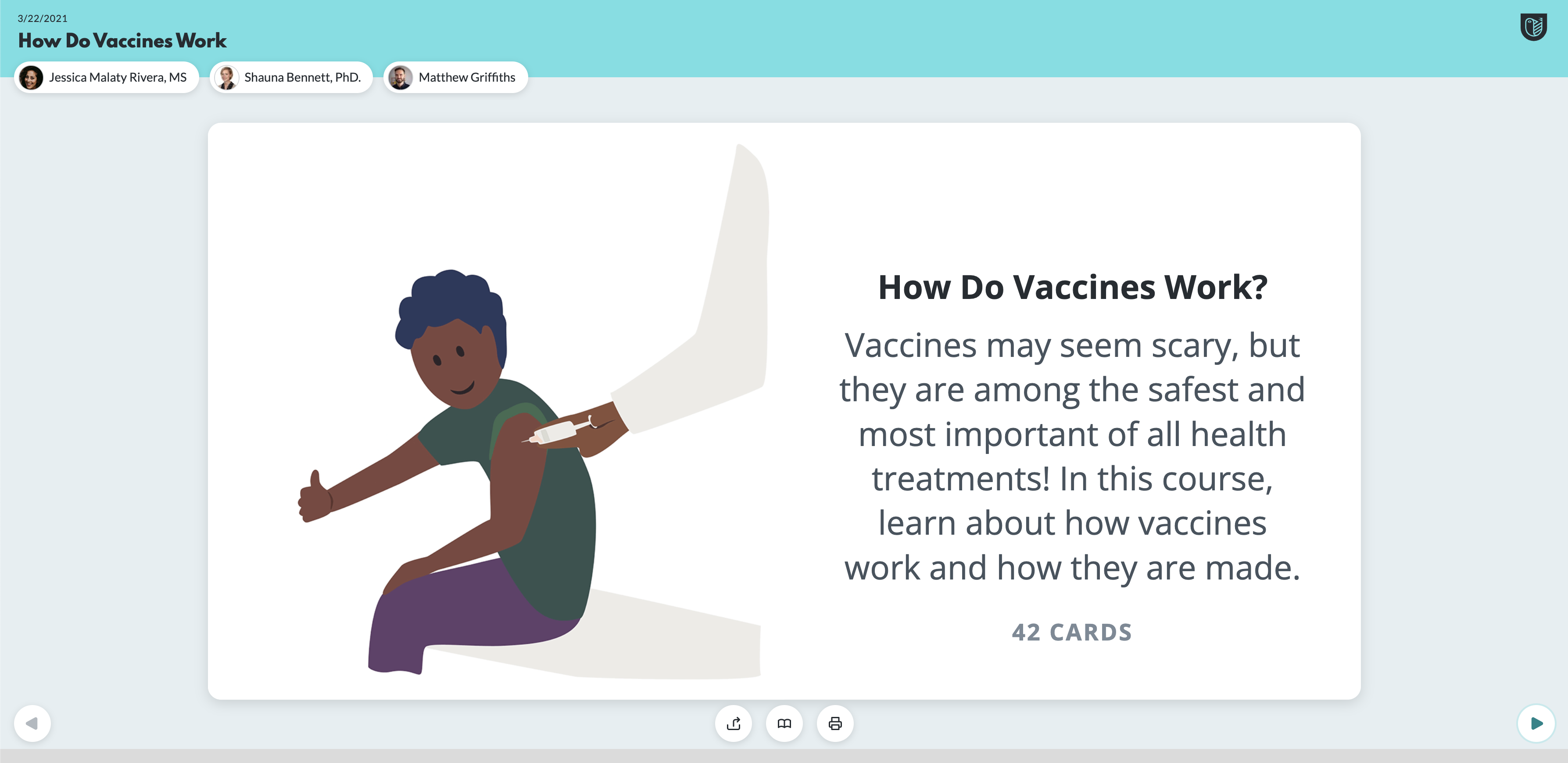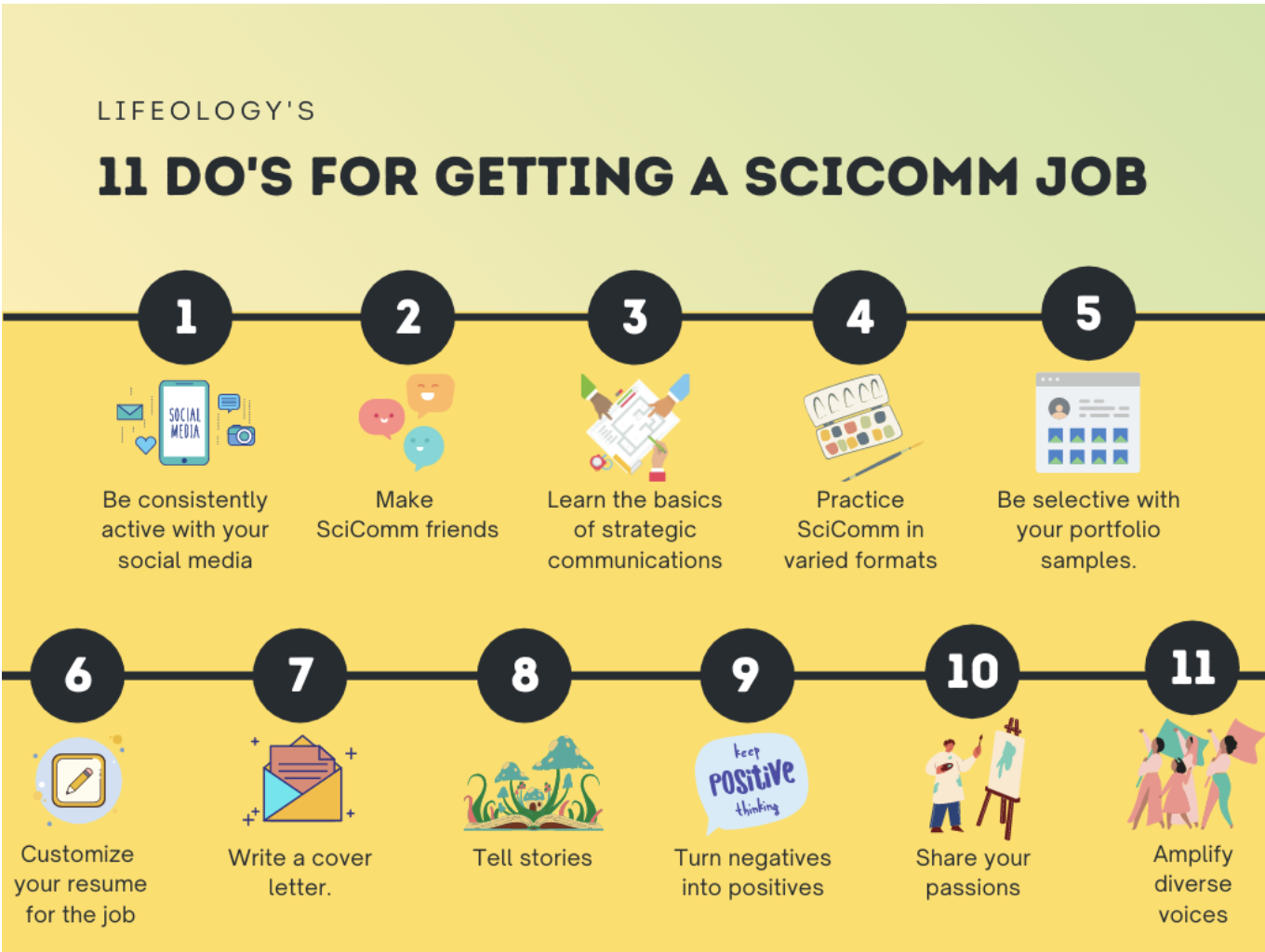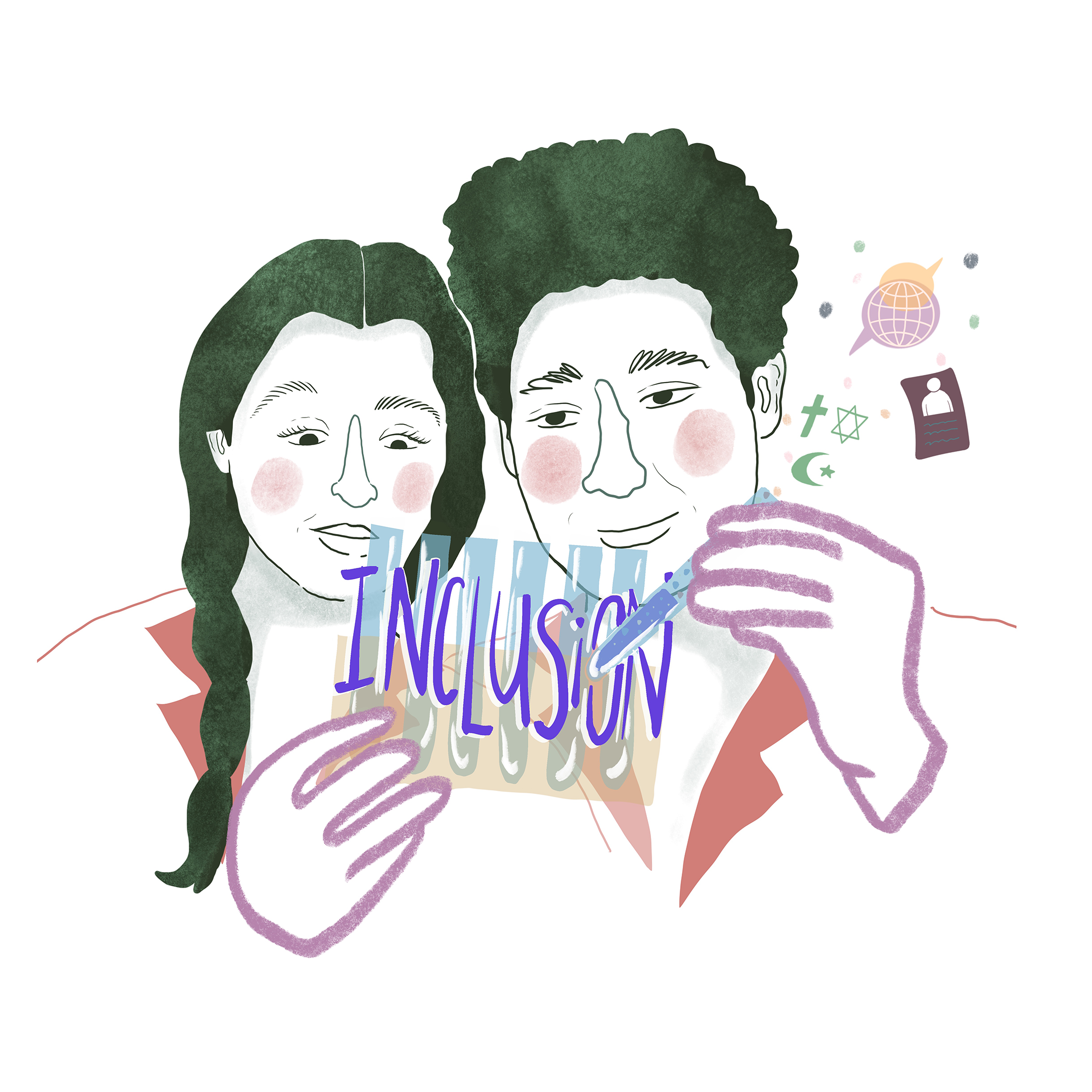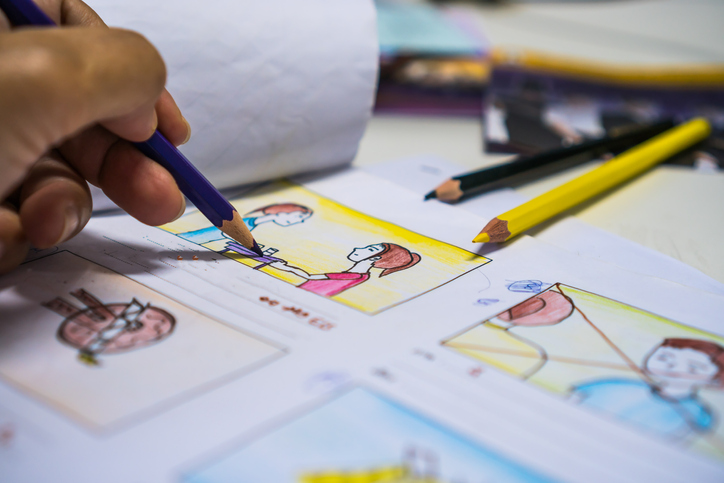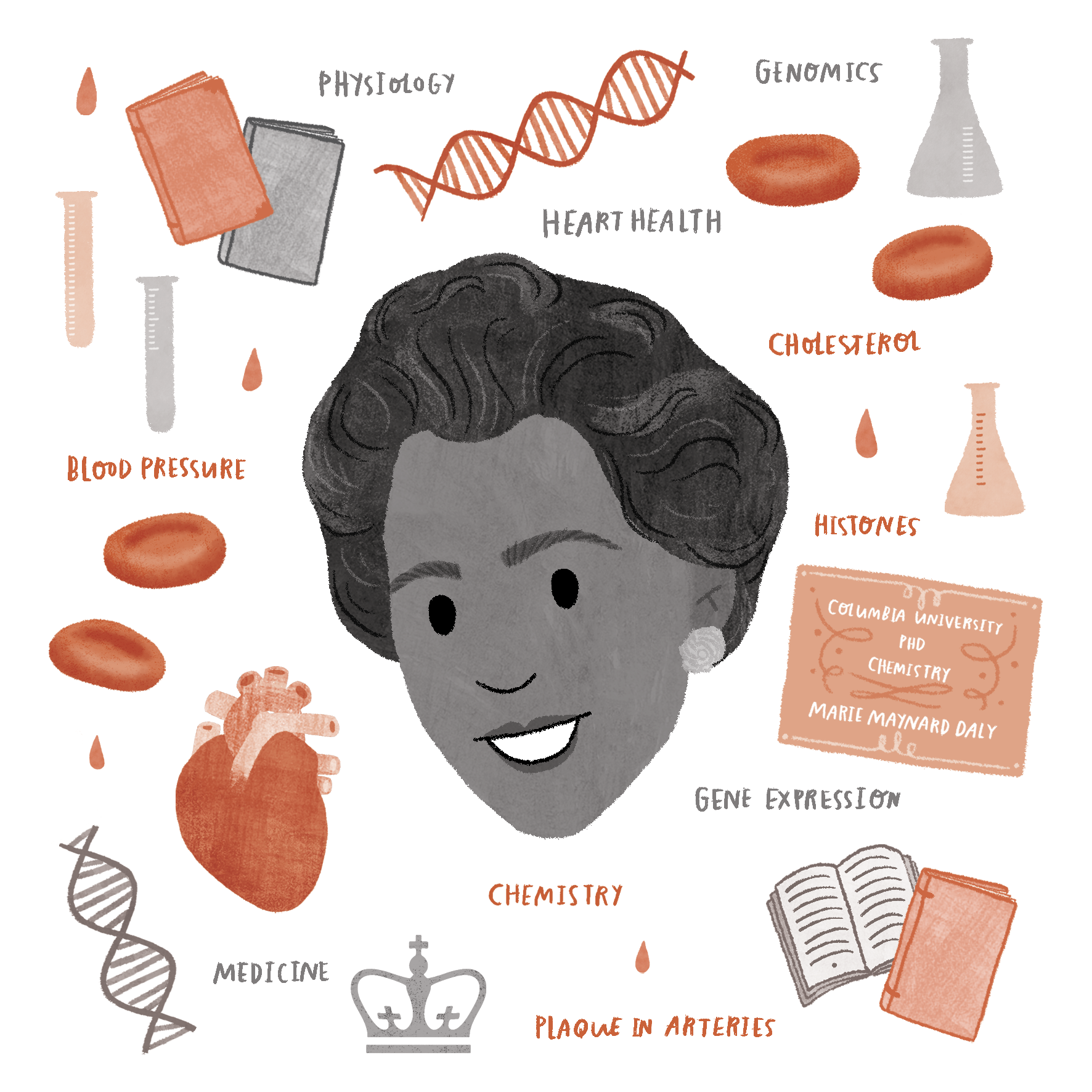We’ve had a busy (but exciting!) year at Lifeology. We’ve curated our most viewed content in 2021. Join us in revisiting some of our courses and blog posts!
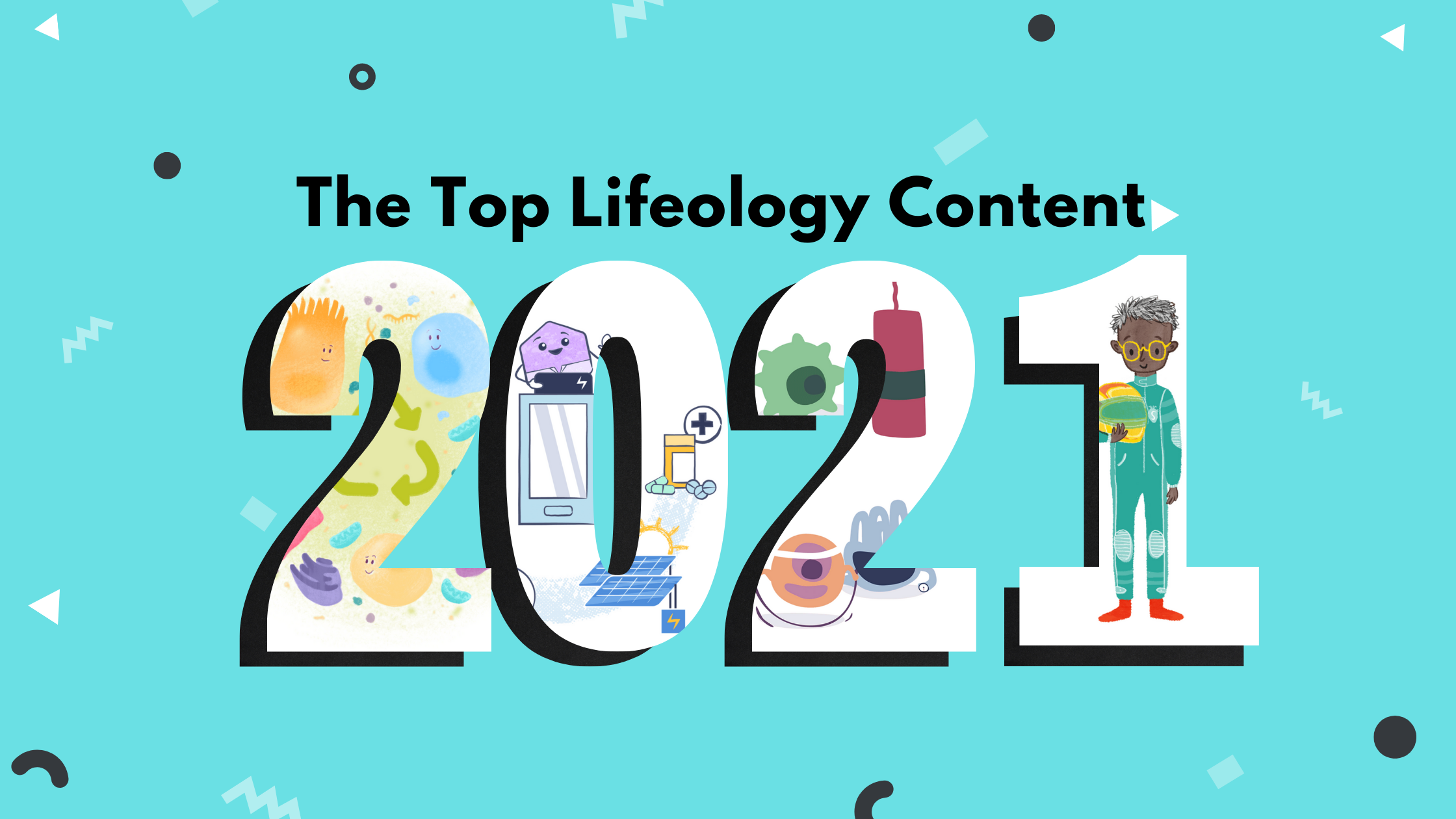
As I am sure is true for many of you, 2021 was a busy year for us at Lifeology. Amidst a continuing pandemic, we managed to continue to grow. We gained several new team members, including a new growth marketing manager, a content illustrator, and more! In March, we hosted a panel at SXSW about the health trust gap, which featured some amazing experts: Kristen Bell, Jessica Malaty Rivera, Natalia Peart, and Ed Simcox. We launched the Lifeology Unversity SciComm Program, which now has 15 free courses available that can help participants become better communicators (based on the science of science communication). Ahead of the U.S. school year, we launched the A to Z STEM Careers–for kids! course. We also continued to produce content related to COVID-19 and improving diversity in clinical trials, partnered with Cochrane to produce a course on infodemics (in Spanish, too!) for Evidence-Based Healthcare Day, created courses on breast cancer, began hosting webinars, and more!
Even though the year has been difficult in many ways, it has been rewarding to be a part of bringing science-backed, expert-reviewed and accessible content to diverse audiences in the form of Lifeology courses. We also love engaging with the Lifeology community through social media and the content we bring to the blog—much of which is created by the Lifeology community, too! Below, we’ve curated our most popular content at Lifeology for 2021. Join us in reminiscing and revisiting the content covering a variety of topics: COVID-19, fasting, cancer, SciComm, storytelling, SciArt and more.
Lifeology Courses – Top 10!
2021 was a big year for Lifeology courses! This year we collaborated with organizations including pharmaceutical company Eli Lilly, the not-for-profit Cochrane, the Center for Sustainable Nanotechnology and others to create Lifeology courses on a range of science, health and science communication topics.
Our most popular courses this year in terms of views covered topics you may be quite familiar with by now—COVID-19 and clinical trials. But did you know that diversity among clinical trial participants is critical to developing new medicines and treatments that work for all people? Have you considered participating in a COVID-19 clinical trial, even as a healthy volunteer? You can learn more about these topics in two courses we collaborated on with Eli Lilly: “What is COVID-19?” and “What are clinical trials?”.
Next up in popularity, with thousands of views this year, were two Lifeology courses that relate to metabolism and what happens in our bodies when we give our metabolic machinery a “break” from processing food into energy: “What is intermittent fasting?” and “What is autophagy?”. These courses are beautifully illustrated by Elfy Chiang and Tori Rogers. They dive into the inner workings of the cells in our body with colorful imagery and fascinating stories about how the timing of when we consume food can change our brain chemistry, help us fight stress and trigger “recycling”! You can learn more about fasting and metabolism at Lifeapps.io.
Our “What is DNA?” course also made our Top 10 list this year—in this course, you can learn what DNA does through a story about the platypus. But the DNA in our bodies (and in animals’ bodies) can become damaged… and sometimes that leads to cancer. Our “What is cancer?” Lifeology course, written and illustrated by former cancer researcher Gaius Augustus, is also on our Top 10 list of courses for 2021.
Cancer is not just a complicated scientific topic—it’s also an emotional one that affects almost all of us either personally or through the experiences of a loved one or friend. It’s a topic that can be difficult to face, let alone want to learn more about the science behind it. That’s why we’ve tried to create some accessible Lifeology courses that can help people with cancer and the loved ones around them better understand this complicated set of diseases. View more cancer-related Lifeology courses below.
- Hallmarks of Cancer
- What is cancer?
- What is immunotherapy?
- What is early-stage breast cancer?
- Living with metastatic breast cancer
Other popular health-related Lifeology courses published in 2021 include “An obesity treatment plan for people of all backgrounds”, “How do vaccines work?”, “Viruses mutate. What does that mean for us?” and “Digital health engagement”, a course that helps you understand how implanted devices like pacemakers work and how a care team can use data from them to better monitor your health.
On an inspirational note, our “Gage Scientists Who Inspire Us!” card-deck collaboration with 500 Women Scientists—a non-profit group dedicated to making science open, inclusive, and accessible—also made our Top 10 Lifeology courses list! This illustrated card-deck features inspirational scientists who are part of the Gage network! The scientists’ stories are sure to inspire you and young people you know to pursue your own STEAM dreams.
Last but not least in our Top 10 is an adorable Lifeology course that follows a nanoparticle named “Lee” through the lifecycle of a battery nanomaterial. Lee can do wonders for the battery life of your electronics, but wreak havoc in the natural environment if you don’t dispose of your batteries in a responsible way. Learn more with Lee in “Nanoparticles in the environment”!
Lifeology University SciComm Courses – Top 5!
In addition to Lifeology courses about science, technology and health topics, we’ve also produced a growing curriculum of science communication Lifeology courses this year! These courses are written and illustrated by a number of talented and accomplished science communicators and science artists including Marina Joubert, Massimiano Bucchi, Reyhaneh Maktoufi, Jordan Collver, Matteo Farinella, Abrian Curington and others!
Check out our list of the top 5 most popular SciComm Lifeology courses below:
- A Brief History of Science Communication
- How to Tell a Science Story
- Style in SciComm
- The Science of Science Communication
- Countering Misinformation in the Information Age
Lifeology Blog – Top 5!
The Lifeology blog provides our community with content related to science, science communication and science art. This year, we brought you a yummy SciComm project for Earth Day, wrote about the science in Shakespeare, featured plenty of blog posts about storytelling and more! Want to blog for us in 2022? Email Courtney at courtney.adams@lifeomic.com or fill out this form. Ready to see what the most viewed blog posts in 2021 were? Continue reading to find out.
Two of our most popular posts were about tips focused on jobs for early-career SciCommers. Our blog post, “11 Do’s for Getting a SciComm Job,” provides you with an overview of what to think about when entering the SciComm field, including telling stories, amplifying diverse voices, and creating a social media presence. What should I be doing before applying for SciComm jobs? What happens once I land an interview? What can I do to have a successful interview? Learn this and more in “A 9-Step Guide to Prepare for (and Ace!) Your SciComm Job Interview.”
Next up is “A SciArt Collaboration – March Animal Madness!,” which features a scientist-artist collaboration: March Mammal Madness. The project was based on a bracket containing 64 mammals with the goal of using science to create the simulated combat between pair-ups. Learn more about the collaboration now and get your creativity hat on before reading our next top posts: “Re-Discovering Creativity in Science – An Interview with Tom McLeish” and “Storytelling Tips for Science Storytellers.” Why is creativity important in science and how can you explore it for yourself? Learn more with Tom McLeish—a longtime scientist who does outreach in schools—who wrote “The Poetry and Music of Science: Comparing Creativity in Science and Art.” In “Storytelling Tips for Science Storytellers,” read 8 science storytelling tips such as taking people on a journey and being honest and authentic with your story. These 5 posts are just the top posts of the year; you can check out all the posts we’ve brought to our community here.
We want to sincerely thank YOU for being a part of our journey the past year, and for many of you, the year before that! It’s hard to believe that Lifeology created and launched its first course less than two years ago. If we know anything, it’s that we are just getting started. We look forward to 2022 and connecting with many more of you in the years to come. Happy New Year!
